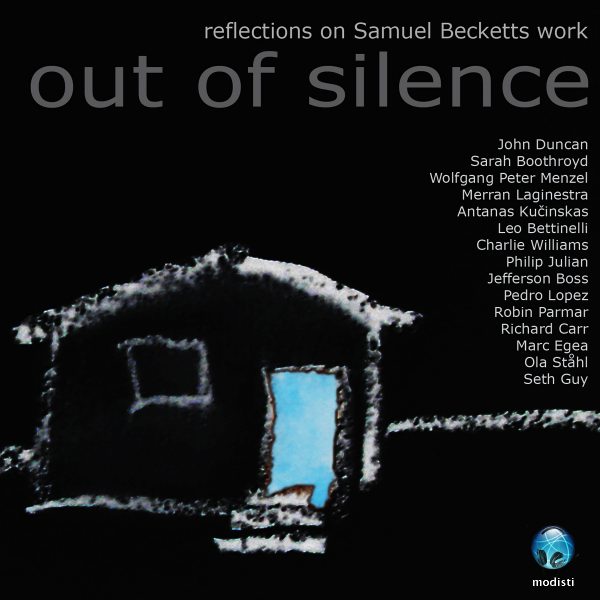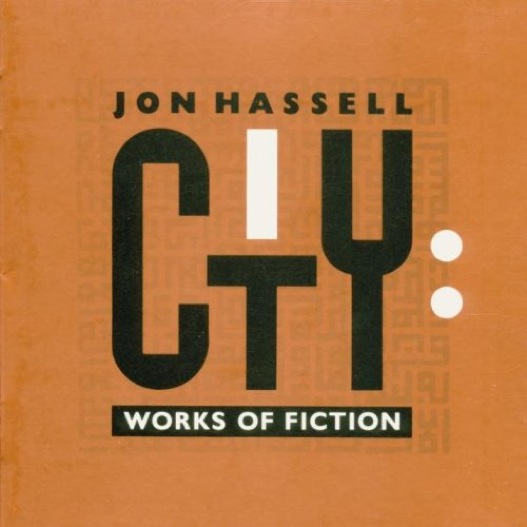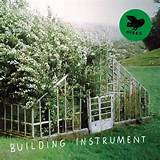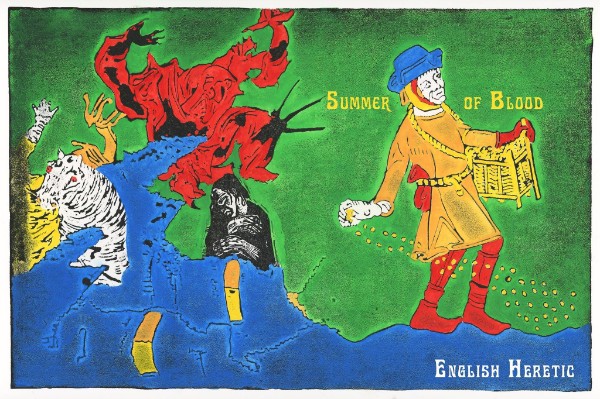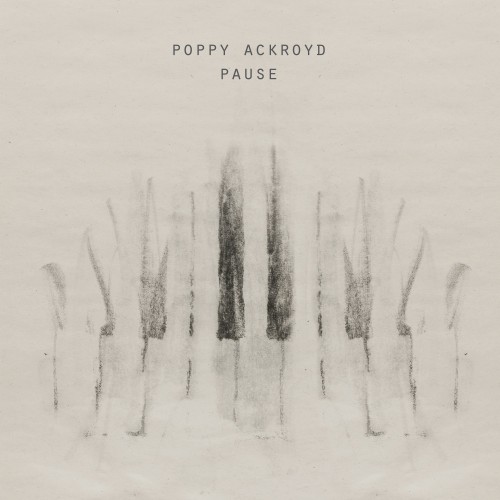Being, like Stanley Kubrick, famously rigid and exacting in the detail around the execution, performance and technical presentation of his work, it’s interesting to speculate on what Beckett would have made of this compilation of interpretations, meditations and commentaries on his work put together by Wolfgang Peter Menzel for the Spanish netlabel Modisti. Spread across two CDs, and comprising pieces by fifteen or so sound artists working in diverse fields encompassing improvisation, radio, electro-acoustic music, theatre composition and installation, the work on offer varies in form as much as that of the man himself.
Sarah Boothroyd’s “You” is scarcely over a minute long, a wispy, airless collage constructed from hair’s-breadth edits of the word “You.” Seth Guy’s rendering of Breath, the wordless late 1960s micro-play for which Beckett gave fantastically precise instructions, pushes the running time up to 33 seconds, from the yelping vagitus at the beginning through the drawn-out inhalation and exhalation that follows. At the opposite end of the spectrum is John Duncan’s thirty minute soundtrack for Film, Beckett’s sole venture into the celluloid medium (an “interesting failure” according to Beckett himself), filmed in New York in 1964 and featuring the decayed, ill yet still magnificent Buster Keaton. Whistling, grinding and hissing away uneasily like Alan Splet’s score for Eraserhead, a hushed voice narrates the action over a steady half-hour crescendo, finally achieving a catharsis of release like an escaping gas.Situated between these polarities are a number of pieces anywhere between two, four, five and ten minutes in duration; Argentine composer Leo Bettinelli’s “Caminata” is an ambient low-frequency wash of sound that one can easily picture sitting as the visual accompaniment to one of Beckett’s short later pieces; Lithuanian theatre composer Antanas Kŭcinskas works with a cut-up of the text of Beckett’s 1958 one-act masterpiece Krapp’s Last Tape, deconstructing its narrative of the voice inside the mind until it comes to resemble the lunatic texture of a poem by Kurt Schwitters; “intermedia artist” Robin Parmar’s five minute piece “Snowblind and Falling” drifts through an ambient landscape of wind and voice inspired by Beckett’s poetry. Beckett’s most famous work – Waiting for Godot – is here too, of course, represented by Jefferson Boss’ “Godot,” a ten-minute exploration of the violence and the silence inherent in the passing of time, in decay and in memory. Written in French the late 1940s, and premiered in 1953, En attendant Godot was the piece that catapulted Beckett into the wider public consciousness, polarising opinion and being perceived as either the most significant play of the 20th Century, or ‘that play where nothing happened.’ Boss’ soundscape may have been inspired by Vladimir and Estragon waiting endless by a tree on a country road for someone that never arrives, but it comes out sounding like pure Zoviet France, and could sit comfortably on Shouting At The Ground. Really though, that’s no bad thing.
A couple of the pieces work less well: Richard Carr’s “The Telephone Call” sounds uncomfortably like Beckett performed as Am Dram; and Marc Egea’s “What Is The Word,” though interesting, lacks the power that might have been afforded it by an interpreter of either greater ability with the spoken word or with a more mellifluous or rounded vocal tone, a Michael Jayston or a Michael Kitchen perhaps. Nevertheless, Out of Silence is an interesting attempt to translate the influence of Samuel Beckett into the realm of sound composition. Despite the nonplussed reaction of many to his early works, through a vast canon of utterly unmatchable and original work Beckett nevertheless became one of the towering artists of the 20th Century, his influence permeating every field of the Western arts, and still being felt, more than twenty years after his death, in everything from David Lynch to The Mighty Boosh. I suspect that the man himself would have hated this CD, both for the liberties taken with the source material by some of the pieces (Beckett called Kenneth Tynan a liar and a cheat for his treatment of Breath as part of his Oh! Calcutta! revue after all) and for its veneration of him personally, something that Beckett was always hugely keen to downplay. That, however, can hardly be the fault of those collated here, and much stands alone as fine work in its own right.Billie Whitelaw, the English actress who was Beckett’s close collaborator and interpreter through almost thirty years, once said that “With all of Sam’s work, the scream was there, my task was to get it out.” Several of the best pieces on Out of Silence bring out that scream very effectively.
-David Solomons-
